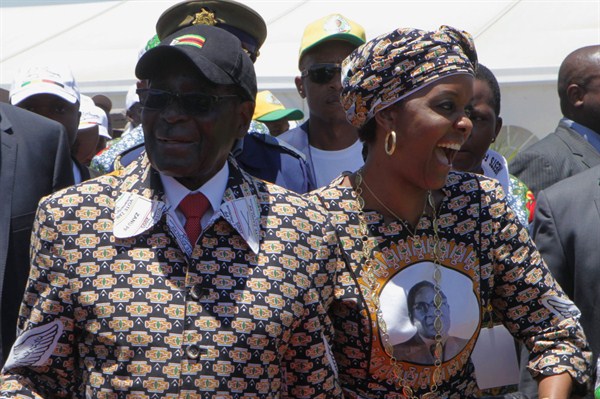Zimbabwe has been a de facto one-party state since the mid-1980s, despite the formal trappings of a multiparty system and a series of fraudulent elections. Real politics, in terms of decision-making and genuine contests for power, is inevitably confined within the ruling party, ZANU-PF. The sole exception to this was the government of the national unity period between 2009 and 2013, although even then, the hegemony of ZANU-PF and President Robert Mugabe remained largely intact despite convincing electoral defeats in 2008.
However, because the party is in thrall to Mugabe—and given his frequent assertions of what amounts to a divine right to rule and to a presidency for life—no mechanisms are in place for a transparent and orderly succession process, a typical feature of highly personalized authoritarian regimes. Thus any maneuvering to succeed him has necessarily been conducted away from the public glare in the subterranean world of internal ZANU-PF politics, which more closely resemble the political intrigues in imperial Rome than a modern democratic state.
However, because of his advancing years, the “unprecedented jostling,” to use Mugabe’s own description of the internal competition to succeed him, has become more intense and more visible this year. Mugabe is now 90 years old and will be 94 by the 2018 elections, in which he has, improbably, already been selected as the ZANU-PF candidate. That jostling peaked on Dec. 9, in the aftermath of the ZANU-PF congress, when Mugabe dismissed 59-year-old Vice President Joice Mujuru, on the grounds that she was supposedly plotting Mugabe’s removal with several other ministers.

